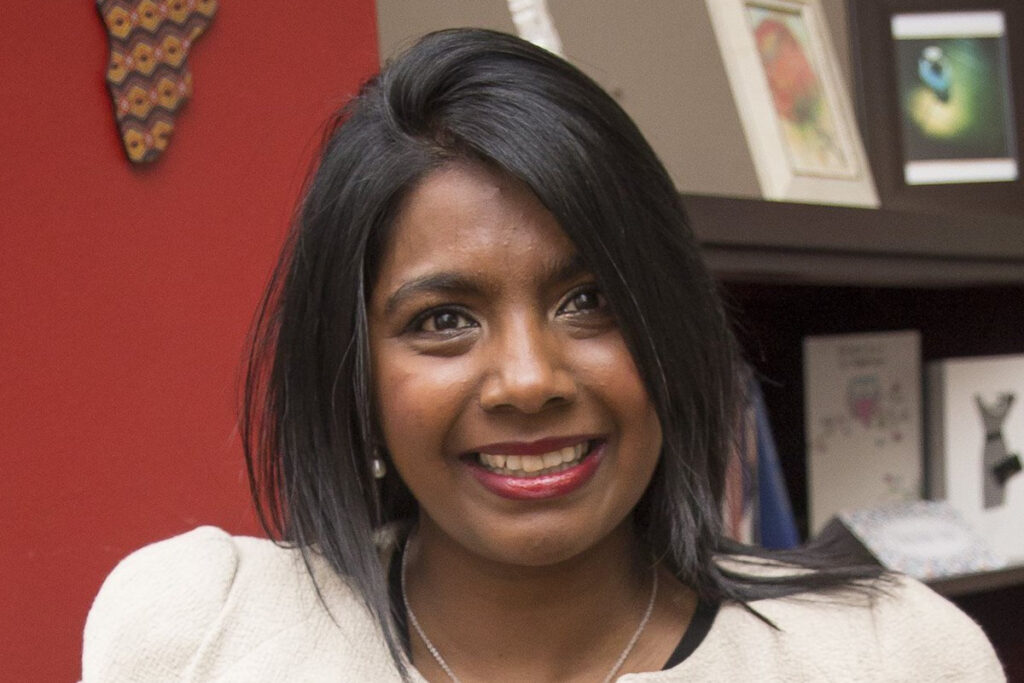UCT Graduate School of Business, Africa’s leading business school for over
five decades
In central Cape Town, Johannesburg and Durban, office blocks that were once bustling with staff and clients are deserted. Meanwhile, in apartment buildings and homes across the country, computer screens light up as employees in slippers get ready for their first Zoom meeting of the day. Research shows up to 88% of SA companies now have permanent remote working policies in place. There is an increase in demand for new technology such as facial recognition and software tools such as robotic process automation (RPA) as companies go online to deliver goods and services during the global pandemic.
“The future is not what it used to be,” warned leadership expert professor Rasoava Rijamampianina in a recent webinar series on the Future of Work, hosted by the University of Cape Town’s Graduate School of Business (UCT GSB) and Accelerate Cape Town. “The industries that thrive will be those that are not focused on getting back to the way things were, but are focused on creating the new normal.”
But how does one prepare for such uncertainty and unpredictability? Especially in an emerging market context where additional challenges including internet access, power outages and economic volatility have to be taken into account? Part of the answer lies in upskilling staff, encouraging new ways of thinking and equipping people with the tools that will keep them and their companies agile, engaged and adapting. Now more than ever, it is essential for organisations to have an ambitious learning and development strategy in place, which is linked directly to the strategy of their business and what they want to achieve in the future.
 Kumeshnee West, Director of Executive Education at the UCT Graduate School of Business
Kumeshnee West, Director of Executive Education at the UCT Graduate School of Business
Some South African companies are leading the way in this regard. The Sanlam Group, South Africa’s largest financial services group and the largest insurance firm in Africa, for example, credits its learning strategy progress to several key developments that have helped to keep the company at the leading edge over the past few years, and almost certainly gave it an edge during the pandemic.
Over the past four years, the company has invested in sending its senior managers on a customised leadership development learning journey — an unusual three-way collaboration between Sanlam, the UCT GSB and the d-school — that combines leadership development with design thinking, a methodology using more creative and flexible approaches to solution finding. Various measurement tools indicate that the initiative has had a transformative impact, not just on the culture of the company — traditional hierarchies being broken down and teams working more collaboratively and innovatively — but also on the bottom line. Project costs have been cut and Sanlam recently announced new business volumes of more than R300-billion and a strong position in the market despite the impact of the pandemic.
Sanlam Group Human Resources Director Jeanett Modise said: “Design thinking has assisted Sanlam in the journey to reinvent itself according to current practices to become more agile and resilient in a fast-paced and competitive industry. The programme has further encouraged employees not to work with preconceived ideas, but to explore solutions relevant to their environment and the local context of our clients.”
Chief Executive: Sanlam Life and Savings Jurie Strydom said that the move was part of a deliberate strategy to make their processes and services more client-centric in a highly competitive industry. Despite the fact that the business was doing well, there was a growing awareness that more agility was needed. Sanlam was built on contractual processes — taking out policies, paying premiums and claims and dealing with intermediaries, brokers and financial advisers. These procedures, each with different operating systems, platforms, approaches and teams had become complex beasts over time.
As a direct result of the programme, the organisation has since completely revamped the digital experience under the Sanlam brand on the website and on other digital properties, providing seamless engagement tools for clients and intermediaries.
One of the advantages of a well-designed formal learning programme is that it can help translate the natural energy and ideas of an organisation’s people into solutions that work on the ground. As Nadine Mayers, who convenes the Sanlam programme at the UCT GSB explained, one of the key challenges of innovation across the world is that there may be amazing solutions, but they are often unable to land within the organisation. “If organisations are not willing to adapt and encourage new ways of thinking and to receive radical ideas, then they cannot succeed,” she said.
Another South Africa financial services giant that has shown itself willing to adapt and foster new thinking is Standard Bank. Since 2014, the company has collaborated with the UCT GSB to create a programme that focuses on customer centricity and giving managers a toolkit and practice opportunities to apply what they learn. The programme has been shown to create direct value for the organisation. As one participant, Ntlai Mosiah, commented: “We have driven tremendous growth in revenue for a key client. The Masterclass tools were very important in maintaining and driving this relationship.”
What is critical to note is that, in both these examples, value in the organisation is being driven not directly by leadership, but by people throughout the organisation. It is often said that people are a company’s greatest asset; and if they are suitably empowered and equipped to be their best selves and given autonomy and a safe space to experiment in real time, the potential to realise value from this asset is limitless. The ravages of the Covid-19 pandemic have only made this more true.
Kumeshnee West is Director of Executive Education at the University of Cape Town’s Graduate School of Business (UCT GSB)